

Modern simulations could improve MRIs
Rice University engineers improve simulations that analyze gadolinium-based contrast agents used in clinical magnetic resonance imaging. More efficient simulations could help make better compounds for imaging technologies.
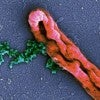
For some peptides, killing bacteria an inside job
Rice scientists study the dynamics of the immune system’s antimicrobial peptides, which attack and eliminate harmful bacteria. They find peptides that invade bacteria and do their damage from the inside are underrated.
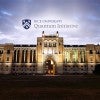
Message from provost on launch of Rice Quantum Initiative
For more than four decades, Rice University scientists and engineers have explored and expanded the boundaries of quantum science and created revolutionary computation, sensing and communication technologies based on the principles of quantum mechanics.

Crop-eating moths will flourish as climate warms
Climate change in this century will allow one of the world's costliest agricultural pests, the diamondback moth, to both thrive year-round and rapidly evolve resistance to pesticides in large parts of the United States, Europe and China where it previously died each winter, according to a study by U.S. and Chinese researchers.

Tweezer grant pleases Rice researchers
Rice researchers have won an NSF grant to acquire a sophisticated optical tweezer microscope to manipulate, measure and monitor micron-scale particles.

Nature’s archive reveals Atlantic tempests through time
Rice scientists uncover how natural archives can record Atlantic hurricane frequency over the past 1,000 years. SUMMARY: Rice University scientists uncover how natural archives can record Atlantic hurricane frequency over the past 1,000 years. More data is needed to help model how climate change will affect storms in the future.

Rice announces new faculty funding opportunities
Rice's Office of Research launches three Creative Ventures Funds to seed faculty initiatives and guide them towards commercialization.

Rice physicists find 'magnon' origins in 2D magnet
Rice physicists have confirmed the topological origins of magnons, magnetic features they discovered three years ago in a 2D material that could prove useful for spintronics.
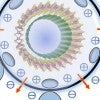
Double-walled nanotubes have electro-optical advantages
Rice theorists find that flexoelectric effects in double-walled carbon nanotubes could be highly useful for photovoltaic applications.
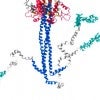
Sim shows how COVID virus infects cells
A simulation shows the complicated mechanism by which the SARS-CoV-2 virus may infect cells, leading to COVID-19.
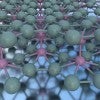
Scientists make bilayer borophene for the first time. The versatile 2D material shows promise for quantum electronics, energy storage and sensors.

Paper: Wealth inequality shrinking after Trump-era tax reform, but progress at risk
Wealth inequality dropped in 2019 in the U.S. for the first time in almost three decades, but proposed tax legislation is threatening to reverse the progress, according to an expert at Rice’s Baker Institute for Public Policy.
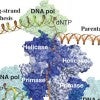
Rice lab dives deep for DNA’s secrets
Structural biologist Yang Gao receives a five-year National Institutes of Health grant to detail how complex protein chains replicate DNA and fix errors on the fly. What they find could help treat genomic disease, including cancer.
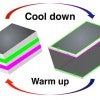
Physicists find room-temperature, 2D-to-1D topological transition
Physicists have discovered a room-temperature transition between 1D and 2D electrical conduction states in the topological insulator bismuth iodide.
